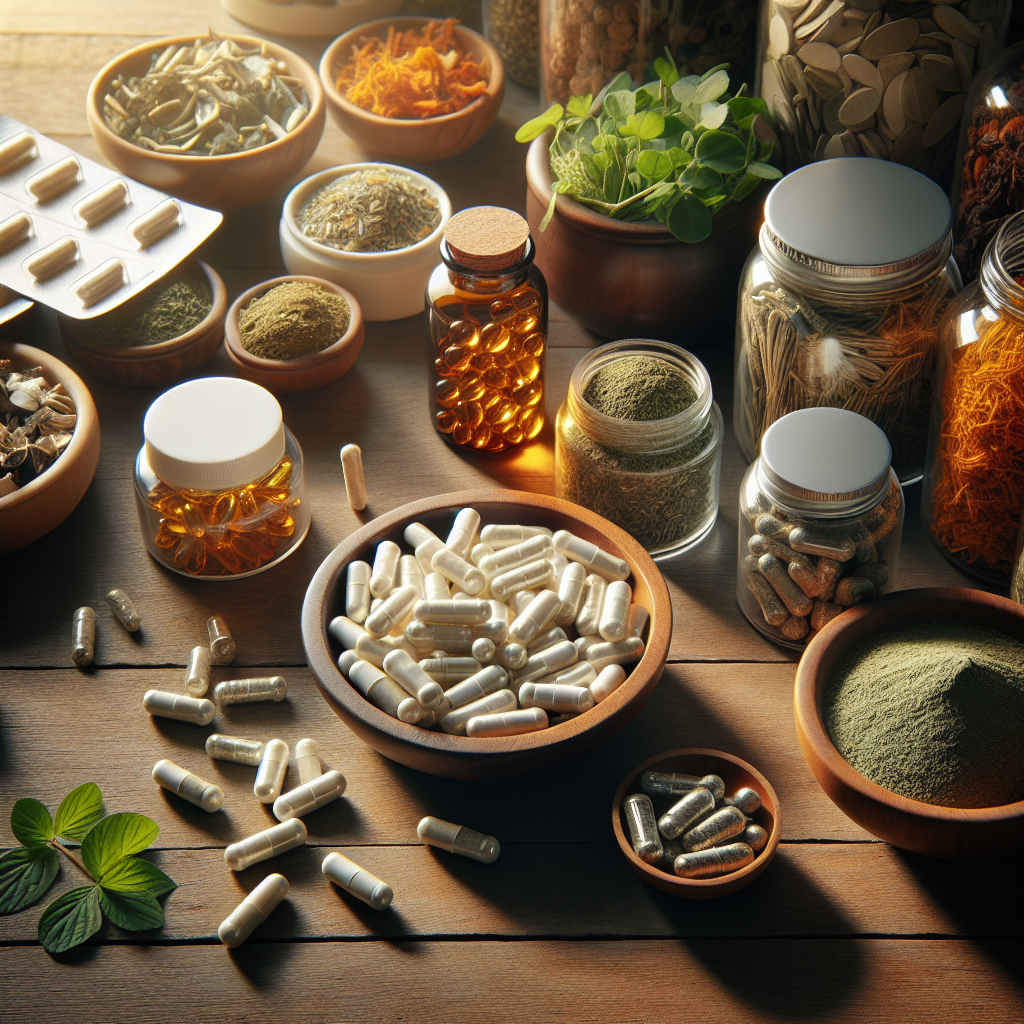The skeletal system is the framework of our body, giving it structure, safeguarding vital organs, and anchoring muscles. Bone health is a critical aspect of overall wellness, and maintaining bone density as we age is essential for preventing conditions such as osteoporosis and fractures. While diet, exercise, and genetics play a significant role in bone health, there is growing interest in the potential benefits of herbal supplements.
The Foundation of Bone Health
Before delving into herbal remedies, it’s important to understand the basics of bone health. Bone density refers to the amount of mineral matter per square centimeter of bones. Healthy bone density is maintained through a balance between bone formation and bone resorption—a process where old bone tissue is broken down and replaced by new tissue. This balance can be influenced by various factors, including nutrient intake, hormonal levels, physical activity, and environmental factors.
Herbal Supplements: A Natural Boost to Bone Density?
Herbal supplements have been used for centuries in traditional medicine to treat a myriad of health issues. Recent scientific studies suggest that certain herbs may have a positive impact on bone density by influencing bone metabolism, providing anti-inflammatory effects, or supplying essential nutrients that support bone health.
Silicon: The Unsung Hero of Bone Health
Silicon, a trace mineral found in certain herbs, is gaining attention for its role in bone formation. Studies have shown that silicon contributes to the growth and maintenance of bones and connective tissues. Horsetail (Equisetum arvense) is an herb known for its high silicon content. The Significance of Silicon for Bone Health discusses the importance of this mineral and its herbal sources.
Phytoestrogens: Hormonal Harmony for Bones
Phytoestrogens are plant-derived compounds that mimic the action of estrogen in the body. They can be particularly beneficial for bone health in postmenopausal women who are at increased risk of osteoporosis due to declining estrogen levels. Herbs such as red clover (Trifolium pratense) and soy (Glycine max) are rich in phytoestrogens and may help in maintaining bone density.
Anti-inflammatory Herbs: Soothing for the Skeletal System
Inflammation can adversely affect bone health. Turmeric (Curcuma longa), with its active component curcumin, has powerful anti-inflammatory properties that may protect against bone density loss. The herb’s potential in preserving bone health is explored in depth in the article Bone Health and Immune System Interactions.
Nutrient Powerhouses: Herbs with Vitamins and Minerals
Certain herbs are nutrient-dense and provide vitamins and minerals essential for bone health. For example, nettle (Urtica dioica) is a good source of calcium and magnesium—two vital nutrients for bone health. Dandelion (Taraxacum officinale) leaves are also rich in calcium.
Vitamin K2: A Key Player in Bone Metabolism
Vitamin K2 is crucial for bone health as it aids in the incorporation of calcium into the bone matrix. The article The Role of Vitamin K2 in Bone Metabolism highlights the importance of this vitamin, which can be found in herbs like natto, a fermented soybean product.
Scientific Backing and Considerations
While the potential benefits of herbal supplements for bone health are promising, it is essential to approach their use with caution. Quality control, appropriate dosing, and potential interactions with medications must be carefully considered. The following external resources offer in-depth information on the subject:
- A study on the Effects of Phytoestrogen on Bone Density published by the National Institutes of Health provides evidence on the bone-protective effects of phytoestrogens.
- The International Osteoporosis Foundation offers resources on the latest research in bone health, including the impact of nutrition and supplements.
- An article on the Anti-inflammatory Effects of Curcumin in the Journal of Medicinal Food discusses the potential benefits for bone health.
These resources can provide valuable insights and help guide the safe and effective use of herbal supplements for those seeking natural options to support bone density.
Lifestyle Integration for Optimal Bone Health
While herbal supplements can be a valuable addition to a bone health regimen, they should be part of a comprehensive approach that includes a balanced diet, regular exercise, sun exposure for vitamin D synthesis, and lifestyle modifications to reduce bone loss risk factors.
Conclusion
Herbal supplements offer a natural avenue to potentially support and enhance bone health. However, they should not replace conventional medical advice or treatments. Before starting any new supplement regimen, consult with a healthcare professional, especially if you have existing health conditions or are on medication.
By integrating herbal supplements with a healthy lifestyle and proper medical guidance, we can take a proactive approach to maintaining strong bones and overall well-being.



